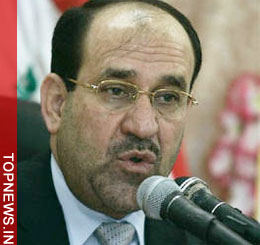Power brokers in the January 31 provincial elections
 Baghdad - Key Iraqi political leaders
Baghdad - Key Iraqi political leaders
Nuri al-Maliki Iraq's Prime Minister and secretary-general of the Daawa party, al-Maliki's political career began as a Shiite dissident under the regime of Saddam Hussein. He fled the country fearing assassination in 1979 and served the Daawa party in exile in Syria and Iran until Saddam's ouster in 2003. Since becoming prime minister in May 2006, al-Maliki (58) has strengthened Iraq's central government and security forces, at times being accused of strongarm tactics.
Sayyid Abdul Aziz al-Hakim A graduate of the renowned Hawza Shiite theological school in Najaf, 56-year-old Abdul Aziz al-Hakim is the leader of the Supreme Islamic Iraqi Council, the largest party in the national parliament. Al-Hakim's family suffered particularly in Iraq's long political struggles, and lost six brothers to assassinations ordered by Saddam Hussein. Having been imprisoned three times for insurgency activities under Saddam, al-Hakim went into exile in 1980. Due to his clerical status, he does not hold a post in the Iraqi government.
Jalal Talabani Jalal Talabani is the president of federal Iraq and the country's leading Kurdish politician. For more than 50 years, Talabani, (75), has forged a political path for Kurds within Iraq, as well as developing relations between the country's ethnic groups. However, questions have been raised about his health, and the succession within his own party, the Patriotic Union of Kurdistan. Kurdish parties stand to lose seats in a number of mixed provinces where Arab turnout is expected to be much higher than in the last provincial vote.
Sayyid Muqtada al-Sadr Another former student of the Hawza school, 35-year-old Muqtada al-Sadr has gone from being a persistent thorn in the side of the US occupation of Iraq into one of the al-Maliki government's most persistent critics. Despite his personal militia - the Mahdi Army - being somewhat enervated by Maliki's troops in March 2008, when the government regained control of Basra's streets, al-Sadr can still mobilize tens of thousands in support of his political aims. On one hand, Sadrists stand to lose votes in Basra because of the new-found popularity of al-Maliki. On the other, rumours exist that the cleric, who was once known as "Mullah Atari" for his love of video games, is planning an alliance with the Daawa party for the January 31 poll.
Tariq al-Hashimi Tariq al-Hashimi (66) is one of Iraq's most visible Sunni politicians, being one of two vice-presidents and the leader of the Iraqi Islamic Party, the main part of the Tawafuq coalition. However, the power-base of Hashimi or his party in the Sunni parts of Iraq is far from assured. In places like Anbar, Hashimi's incumbent party is having to defend against fierce campaigning from the new political fronts of the Awakening Councils movement, which emerged in opposition to al-Qaeda in 2006. Al-Hashimi is a strong opponent of greater federalization in Iraq, and has also spoken out against de-Baathification, although was never a member of Saddam's party himself. (dpa)